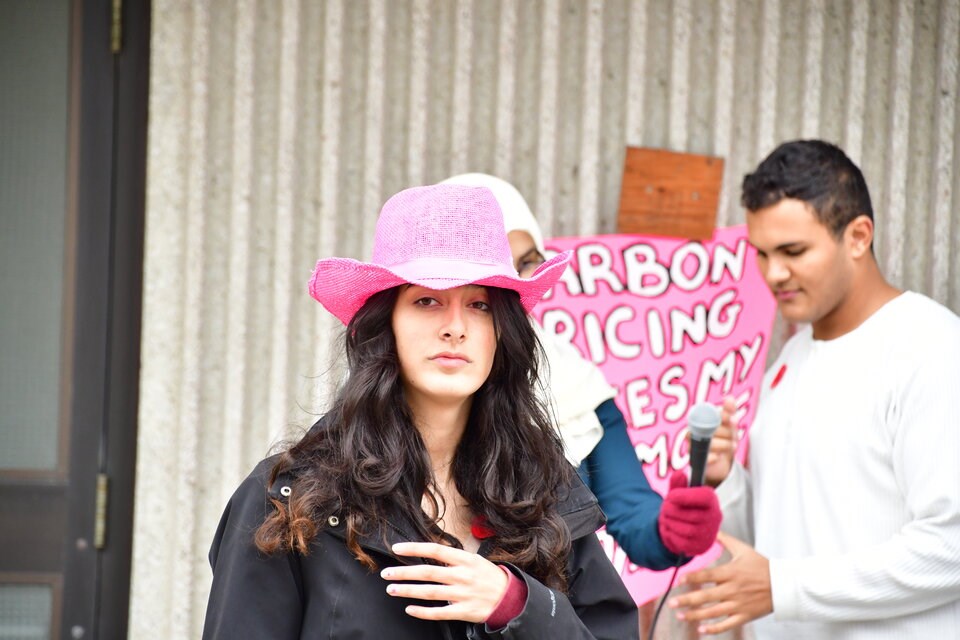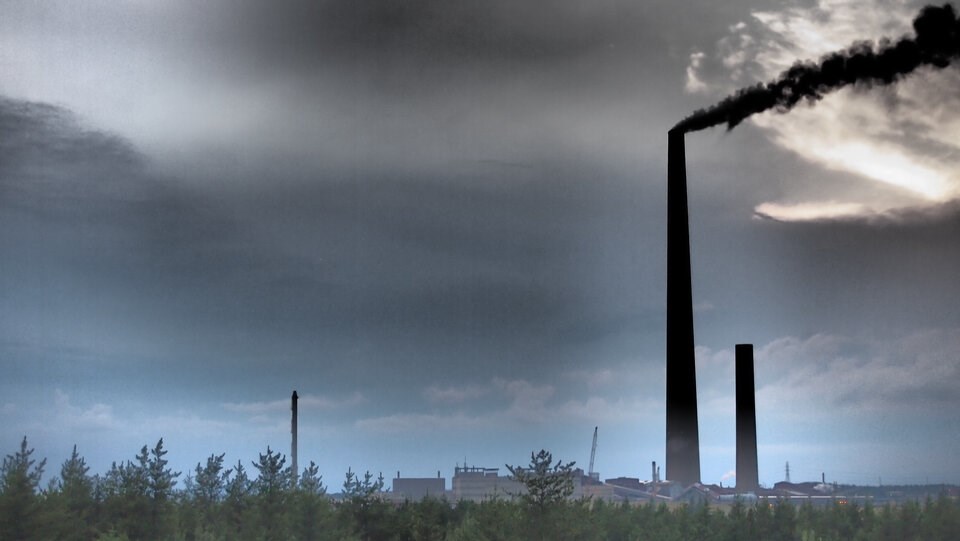Several sa国际传媒 groups have been granted a right to intervene in an Ontario Court of Appeal case that could determine whether governments can claw back their own climate targets without breaching the charter rights of young Canadians.
The case dates back to 2019, when the Ontario government under Premier Doug Ford rolled back the previous climate targets to reduce emissions 37 per cent below 1990 levels by 2030. That was replaced with a single 2030 goal that would lead to the release of about 200 million more tonnes of carbon than under the previous target.
Seven young people, led by 16-year-old Sudbury, Ont., resident Sophia Mathur, challenged the government policy, claiming the resulting climate impacts will harm future generations.
As a child, climate change was always something Mathur talked about at the dinner table. But in recent years, it’s felt more personal. Winter weather in northern Ontario has become unpredictable.
“We usually are a blueberry-picking season, we usually like to go pick blueberries, but now they barely even show up,” said Mathur.
Wildfires have changed the nature of summer. Mathur says one of her sisters, who lives in Ottawa, has lung problems and struggled this summer under weeks of smoky skies.
“It was pretty bad,” said Mathur. “She was having a lot of trouble.”

鈥婱athur and the other six applicants claim Ontario’s climate plan violates the youth’s charter rights meant to guarantee protection from discrimination and ensure Canadians have a right to life, liberty and security.
In November 2020, an Ontario court said it would hear the case. It was the first time in Canadian history that a court recognized climate change has the potential to violate charter rights, for the youth say.
“When you're a teenager and you're in high school, you're trying to figure out what you're going to do with your life. You want to apply for university, and things like that. And what I want to do with my life is to have a safe future,” said Mathur. “So it feels like my responsibility.”
“We're representing the future population of Ontario.”
In an April 14, 2023, ruling, Ontario Superior Court Justice Marie-Andrée Vermette decided to dismiss the application, finding the province’s targets were not unconstitutional and that the youth’s had not been violated.
Lawyers for the applicants said that while the ruling failed to overturn Ontario’s policy, it “cleared some major hurdles to set an important precedent for climate litigation in sa国际传媒.” That included accepting scientific consensus that climate change is real and that international agreements to halt its impact are legitimate.
“Every small victory that we can achieve in this case really helps. They are building blocks for other cases that are being brought potentially against other jurisdictions in sa国际传媒,” said Danielle Gallant, one of the lawyers for the seven youth.
Fighting climate change as a 'social service'
Part of Vermette’s decision hinged on her framing the situation as a “positive rights” case. She said the court was asked to compel Ontario to proactively take action to stop a future harm, instead of respond to government action that’s harming the public.
That put up barriers for the court because judges more often recognize “negative rights.” That's where people are protected against negative impacts caused by government actions, according to Teagan Markin, a lawyer for the BC Civil Liberties Association (BCCLA).
In pursuing intervener status, the BCCLA seeks to overturn the core of Vermette’s ruling — that charter challenges can’t seek “positive rights” in certain circumstances.
Markin says BCCLA got involved in the case because it has the potential to set a precedent on how much courts can hold government accountable for services it provides society.
“So things like health care, basic social services, subsistence welfare, and of course in this case, climate regulation. This case really does have huge implications for constitutional law, for all Canadians and British Columbians,” Markin said.
The appeal will be heard at a Toronto courthouse in January, and according to Markin, will answer whether the government has a constitutional obligation to do something about climate change.
Some of Markin’s arguments rely on government decisions around access to abortion and medically assisted dying. She said the Supreme Court has already ruled government has an obligation to sometimes do more, such as provide care, and sometimes do less, like eliminate barriers to access that care.
Responding to climate change is a “social service,” she said, because people need government relief to deal with climate change in the same way those impacted by poverty look to the government for help.
More broadly, she said, if the applicants fail, it could signal government doesn't have an obligation to provide social services, and could even “immunize” all of social services from judicial review.
'Huge implications'
The sa国际传媒 rights group will be joined by a number of other interveners, including the Assembly of First Nations, the Canadian Association of Physicians for the Environment, Greenpeace sa国际传媒, and Stichting Urgenda, an action group in the Netherlands that won a lawsuit against the Dutch state in 2015. That case, which was upheld by the country’s Supreme Court in 2019, ruled the government must adhere to its initial emission reduction targets.
“It turns into a somewhat kind of international collaborative effort of lawyers throughout the world really trying to build these cases and to lift each other up where they can,” Gallant said. “This is a global action problem. We need to address all jurisdictions.”
Andrew Gage, a lawyer with another intervener, West Coast Environmental Law Association, said there has never been a case where a court has overturned a government policy decision in favour of the right of Canadians not to have their environment destroyed.
Gage said his firm will be arguing that government climate targets should be based on science, and adhere to international commitments made under the 2015 Paris climate accord to limit global warming to 1.5 degrees Celsius.
“More and more people are saying, can the law actually protect us against climate change?” said Gage. “When the government becomes aware that its actions are actually threatening its public, what's its obligation?”
“That's got huge implications, either way.”
'Right to a healthy environment'
, another intervener in the case, is taking a different approach. Lawyers for the group are reaching back to the public trust doctrine, laws first laid down nearly 1,500 years ago in the Byzantine Empire to protect the sea and its shores as a common good, free from privatization.
Over the centuries, the legal principle that governments have a duty to safeguard natural resources for current and future generations has been recognized in courts in England and the United States. More recently, U.S. climate litigation has used the public trust doctrine to argue the government has a duty to protect the natural environment, including the atmosphere.
The Ontario case offers a door to set those same legal precedents in sa国际传媒, says one of the group’s lawyers, Hassan Ahmed, who is also an assistant professor of law at the University of British Columbia.
“The mere existence of government necessitates that it should sustain the Earth’s livelihood, the Earth's existence — not just for our generation, but for generations to come,” said Ahmed. “There should be a right to a healthy environment.”
A ruling in favour of the seven youth would set a legal precedent across the country, and push judges to consider the Charter of Rights and Freedoms when a province’s carbon pollution plan is challenged in court, say the interveners.
A victory for Citizens for Public Justice could be used to prevent governments across sa国际传媒 from clawing back climate targets, and force them to adhere to international treaty obligations on climate change.
“It could be a sword used against future governments that are more pro-industry and overlook climate change,” Ahmed said.
On the other hand, should the Ontario government win the appeal, the seven youth could raise their case to the Supreme Court of sa国际传媒. For Gallant, a loss there would mean future litigants would have to go after a different type of government action. But for the UBC lawyer, a loss at sa国际传媒's highest court would largely remove legal oversight over political decisions on climate change targets.
“That would really politicize climate goals. It'd be left to the political branches of government to decide,” said Ahmed.
“It would take the courts right out of it.”


